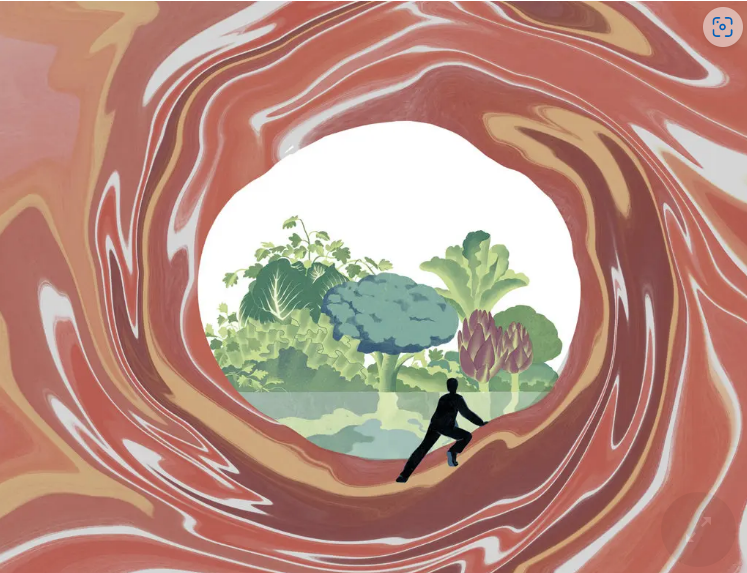这篇文章由Alexa Troob撰写,是我们第七届年度学生编辑大赛中学组的前三名获奖者之一,我们收到了1,242份参赛作品。

岑俊
“Bringing Ethics to Your Plate”
By Alexa Troob, age 13, Robert E. Bell Middle School, Chappaqua, N.Y.
Growing up in a family of meat-eaters, I always accepted the fact that animals were food. I was in denial of the inhumanity.
This year, I volunteered at the Society for Prevention of Cruelty to Animals, helping mistreated dogs. I would tear up seeing the desperate eyes of previously abandoned dogs while there were chickens being ground alive, suffocated in bags, gassed to death and then eaten by me. One day, I began to wonder what differentiated those chickens from my two labradoodles and the other dogs at the shelter. Whenever pet abuse is seen, instant outrage is unleashed. Meanwhile, farm animals are tortured and killed daily, and we do far from express outrage: we eat them.
The book, “Why We Love Dogs, Eat Pigs, and Wear Cows,” discusses carnism, the belief system that allows people to eat certain animals over others. If you were told the grilled meat you were enjoying came from a golden retriever, you would be immediately disgusted. If you were told you were eating pork, you would continue to see your meal as delicious food rather than a dead pig. A New York Times editorial states that we need to disconnect from reality to eat meat. Trying to disregard the truth of eating an intelligent and aware animal so you can enjoy your meal is selfishness in its truest form. There is a reason you take your kids to pick apples, but not to a slaughterhouse.
Once I questioned eating animals, one thing that shocked me was the complexity of farm animals’ feelings. According to an article in One Green Planet, cows have an unbelievable memory and form strong friendships, pigs recognize themselves in mirrors and chickens are empathetic mothers. I had the opportunity to go on a safari where I witnessed a mother wildebeest mourning her newborn’s death. She stayed by the scraps of her baby for over 24 hours showing obvious distress. For those of you that have also observed an animal interacting with the world, there is no doubt they feel fear, joy, empathy and pain.
People claim eating meat is a health necessity. That couldn’t be further from the truth. In fact, meat is a leading cause of heart disease, diabetes, strokes and cancer. A Huffington Post article claims that vegetarians live approximately eight years longer than average, similar to the gap between smokers and nonsmokers. We possess many alternatives to eating meat that will raise the average American life span, decrease the risk of numerous diseases and improve overall health.
We need to break our wall of numbness, accept the truth and make changes. If our world went meat free, our farm animal friends would be eternally grateful.
Works Cited
Freston, Kathy. “Why Do Vegetarians Live Longer?” HuffPost, 28 Oct. 2012.
Joy, Melanie. “Why We Love Dogs, Eat Pigs, and Wear Cows.” Conari Press, 2009.
Schott, Ben. “Carnism.” The New York Times, 11 Jan. 2010.
Vallery, Anna. “5 Farm Animals That Are Probably Smarter Than Your Dog.” One Green Planet, 2019.